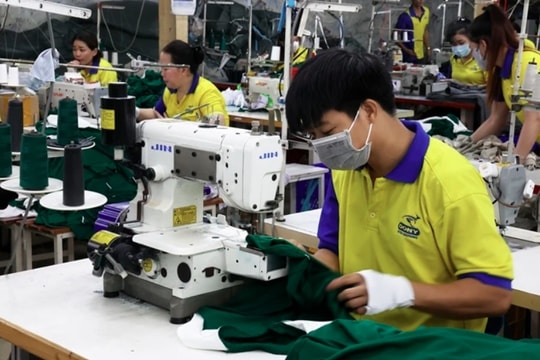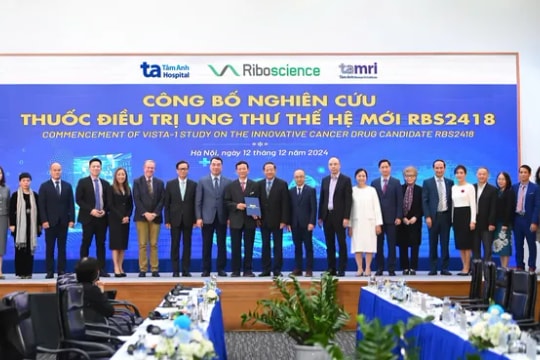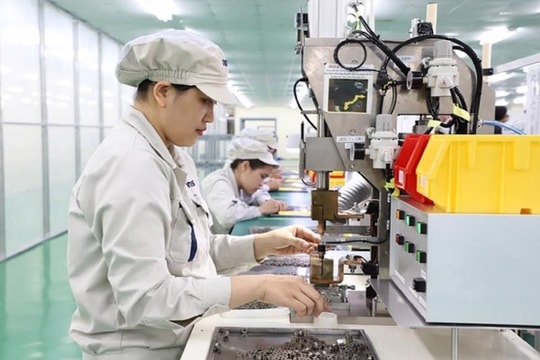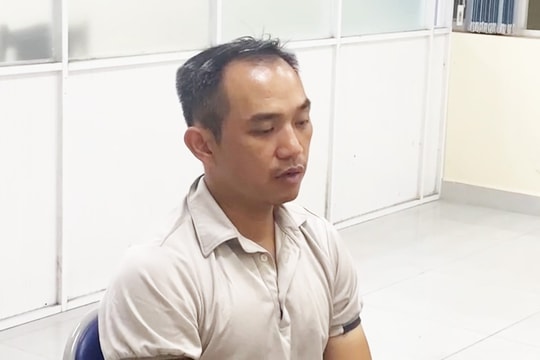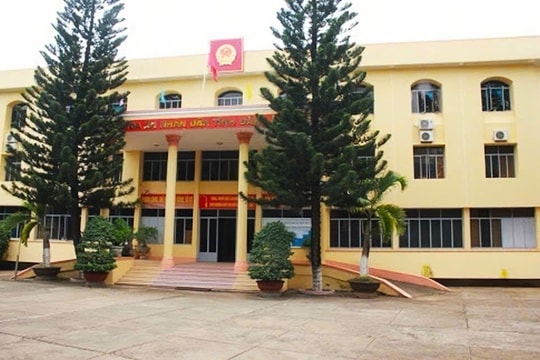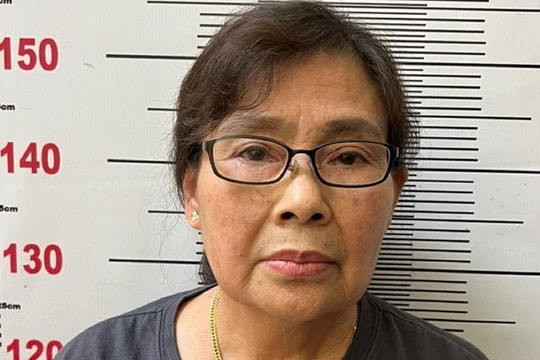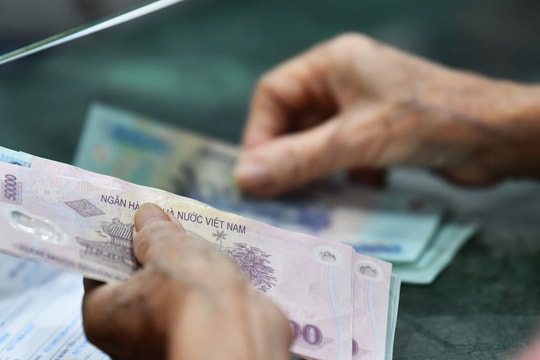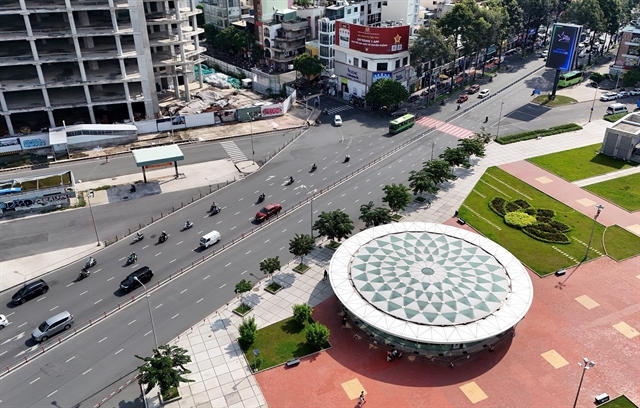 |
| Aerial view of the Bến Thành Station, which is the first and also the largest underground station of Metro Line No 1 in HCM City. — VNA/VNS Photo Hồng Đạt |
HCM CITY — The Bến Thành-Suối Tiên urban railway line No 1 in HCM City is expected to roll out on December 22, and to help passengers, the municipal Department of Transport (DoT) is setting up 17 electric bus routes connected to metro stations, the equivalent of 150 buses.
The details were revealed by Ngô Hải Đường, Head of the Road Transport Management Division under the DoT, at a meeting on socio-economic issues organised by the municipal Party Committee's Commission for Publicity and Education, in coordination with the HCM City Department of Information and Communications, on Thursday afternoon.
The bus routes will run along the Bến Thành-Suối Tiên Metro corridor and pick up passengers from neighbouring streets to take them to the nearest station.
Đường said that construction on Metro Line No 1 of the Bến Thành-Suối Tiên route is now complete, with the service running a trial last month.
Currently, the city’s Urban Railway Management Board is completing final procedures related to the system safety certification and environmental permits.
To ensure the Metro Line 1 works at optimal efficiency, the DoT has developed a plan and implemented many integration options with other types of transport including buses, public bicycles, four-wheel electric vehicles and river buses.
At the same time, it installed 162 stops, 61 waiting rooms and two-wheeled parking spaces for train passengers at Văn Thánh, Thảo Điền, Bình Thái, Rạch Chiếc and Phước Long stations.
The electric bus routes will be rolled out earlier than the official launch date of Metro Line 1 to ensure smooth operation and allow people to gradually get used to the new transport option.
Regarding the electric bus charging station system, the Phương Trang Company – which manages the 17 bus routes – built two charging stations at the company's parking lot in Thủ Đức City with 23 charging posts, with a capacity of 180kW and 240kW.
For public bicycles, the Public Transport Management Centre coordinated with the Trí Nam Group Joint Stock Company to rearrange 45 public bicycle stations in District 1, establishing them around underground metro stations and equipping them with electric bicycles to increase passenger convenience.
For four-wheel electric vehicles with engines, the centre finished a plan to connect with three underground stations of Metro Line 1 including Bến Thành, City Opera House, Ba Son and Tân Sơn Nhất Airport.
At the three stations, the electric vehicles will operate with flexible routes and times, based on people's needs to reduce travel costs, with ticket prices between VNĐ5,000-10,000 (US$0.19-0.39) per trip.
In addition, the DoT plans to develop a river bus route connecting the Ba Son and Tân Cảng stations.
The city's public transport system, including Metro Line 1, buses, river buses, and open-top double-decker buses, has been integrated into the Gobus app, making it easy for passengers to find information and choose convenient routes.
Đường said that Metro Line 1 was expected to bring positive and profound changes to traffic in HCM City. Major routes such as Lê Lợi, Nguyễn Huệ, Tôn Đức Thắng, Nguyễn Hữu Cảnh and Võ Nguyên Giáp should be significantly eased in terms of traffic volumes, especially during rush hours.
Bus operations will also be adjusted to avoid overlapping routes with the metro line, while optimising operating times and effectiveness. This will significantly reduce personal vehicles, reducing congestion and traffic accidents.
With its speed, convenience and reasonable ticket prices, the city hopes the metro line will encourage more computers to switch to public transport, changing travel habits and awareness of environmental protection, he said.
The Metro Line 1 also plays an important role in sustainable urban development. Reducing the number of personal vehicles will significantly improve air quality, reduce noise and minimise environmental pollution in the city.
The metro line will promote transit-oriented development (TOD), helping to increase land use value, change the urban landscape, and promote economic and tourism development around the station area.
This is an important step towards a modern, efficient and environmentally friendly transport system.
The Bến Thành - Suối Tiên Metro is approximately 19.7km long, with three underground stations and 11 elevated stations. The line will carry a total of 17 trains, each capable of carrying 930 passengers, including 147 seated and 783 standing passengers. The maximum design speed is 110km/h (for the elevated section) and 80km/h (for the underground section). — VNS




